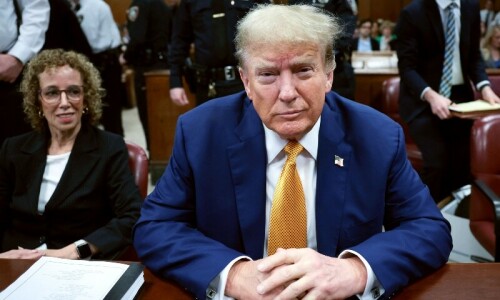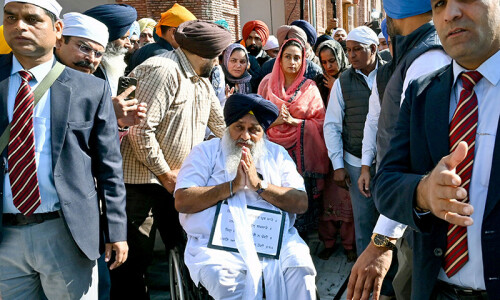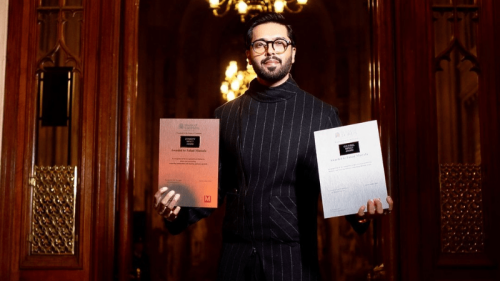ISLAMABAD, April 19: Literacy ratio in Pakistan still remains at 50 per cent, mainly because of small budgetary allocations, lack of political will and delays in disbursement of funds, according to the Unesco.
In the region, Pakistan has been ranked higher only than Nepal and Bangladesh, which have literacy rates of 49 and 43 per cent, respectively. Other countries have far better ratios: the Maldives, 96 per cent; Sri Lanka, 91 per cent; and India, 61 per cent.
Addressing a function organised by the Parliamentary Caucus on Literacy in Pakistan on Saturday, Unesco’s representative Arshad Saeed Khan said there were about 55 million illiterate people in the country because of which the country risked failing to achieve the Millennium Development Goals (MDGs).
If corrective measures were not taken, the percentage of illiterates might rise to 60 per cent of the population by 2010, he said.
Sindh has the highest percentage in education which stands at 54 per cent followed by Punjab (52 per cent) and the NWFP (40 per cent). Balochistan has the lowest ratio – 33 per cent.
The Unesco attributed the low level of literacy rate to factors like weak organisational infrastructure, low professional capacity, lack of research, non-availability of proper training institutes, low public awareness and lack of evaluation and monitoring system.
“The state shall be responsible for eradication of illiteracy and provision of free and compulsory education up to secondary level, within minimum possible time,” says article 37-B of the 1973 constitution.
Mr Arshad Saeed said that 16 political parties – including the PPP, PML-N, ANP, JUI-F and BNP (Awami), BNP (Mengal), Jamaat-i-Islami, Pakhtunkhwa Milli Awami Party and National Party — had signed Education For All Declaration on February 5, 2008 in which they had pledged to increase education budget up to 4 per cent of GDP, at least 10 per cent of the education budget for literacy and non-formal education, free and compulsory primary education — achieving 100 per cent enrolment rate, 86 per cent adult literacy by 2015, eradicate political interference and favouritism in appointments, transfers of education staff and uniform core curriculum and similar facilities in all schools.
Unesco stressed the need for legislation for free secondary education as a fundamental right, increasing education budget to 4 per cent of GDP, ensuring equal opportunities for all children because Pakistan has ratified Unesco Convention Against Discrimination in Education.














































Dear visitor, the comments section is undergoing an overhaul and will return soon.